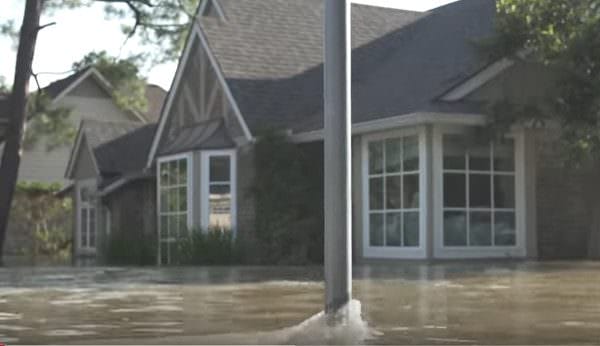
Posted on 09/18/2017 12:16:37 PM PDT by marktwain

With the recent impact of two hurricanes, Harvey and Irma, on the United States, there is going to be a lot of ammunition that was submerged for some time.
To prevent damage, many people keep ammunition in waterproof ammo cans. They tend to work very well, if the can is not submerged more than a few feet. Not everyone stores ammunition in ammo cans, and the cans can be damaged or leak.
The two storms flooded tens of thousands of houses. A recent survey showed that about half of the homes in the United States have a gun owner living in them.

The organization that sets the standards for firearms and ammunition manufacture in the United States, SAAMI (Sporting Arms and Ammunition Manufacturer's Institute), recommends zero tolerance for ammunition that has been submerged for any period of time.
(Excerpt) Read more at ammoland.com ...
I put my ammo in gallon zip-lock bags, and then into ammo can. That way, even if some moisture gets into the can, the ammo will stay dry.
I’ve shot WW2 30-06 with no problems. Much depends on how the particular batch was stored. Your mileage may vary.

Spam cans are water proof.
Throw it in a lake pick it up when you need it. Open it with your tuna can opener and lock & load.
Yes, I’ve done it.
Assume it’s compromised.
Replace it.
If even 1 round out of 20 misfires, you’re dead.


This Ping List is for all things pertaining to the 2nd Amendment.
FReepmail me if you want to be added to or deleted from the list.
More 2nd Amendment related articles on FR's Bang List.
Submerged Ammunition???
= = =
What about all those poor firearms, victims of boating accidents?
I had to look that one up.
= = =
And that would be Trout Unlimited ... apropos for underwater situations.
Not to worry!
Find a new per peeve!
Gas oven or will a microwave do the trick?
“Find a new pet peeve!”
No problemo.
A couple of maroons in my neighborhood on a frosty morning put two quarts of oil in their apartment oven to warm the oil before adding the oil to the engine in their beater.
They were last seen running from their abode with their clothes on fire after the explosion.
If the bullets have been in a flood just dry them up in a warm oven.
Yep! Living on the shores of the Chesapeake Bay, the storm surge for 2003 hurricane Elizabeth left 4-feet of water and mud in the first floor of my house.
Some of the ammo I had stored was not on the three 20-ft-long wall shelves that were 4-6 feet off the floor where most of my ammo was stored.
Net result was that 4 cases of ammo were under water for 2-days. I tried giving the ammo to a local gunsmith. He refused it. So over a period of 6-weeks I opened all the cases (4000 rnds 7.62 and .223) and spread the ammo out on towels to dry. Most were just slightly damp.
8-years later I gave most of the ammo to my grandsons to test and use for practice. Amazingly they have had few jams or other problems in the 6-years they have been using it.
What about condensation forming on the inside of the plastic bags? Desiccant packets are more effective.
Paging the Darwin committee.
I was talking to the guys at Georgia Arms (big commercial reloader) about this. The metal cans just aren’t as available surplus as they used to be. That’s why so much of their stuff is in the newer plastic ones, even though the pictures at their web site still show the metal ones.
http://www.georgia-arms.com/
I should buy some more at Costco . . .
of course.
If the ammo is dry, and I pack the ziplock bags in winter when humidity is low, how is moisture going to get inside the ziplock bag to cause condensation?
Disclaimer: Opinions posted on Free Republic are those of the individual posters and do not necessarily represent the opinion of Free Republic or its management. All materials posted herein are protected by copyright law and the exemption for fair use of copyrighted works.